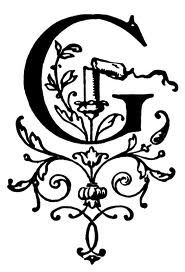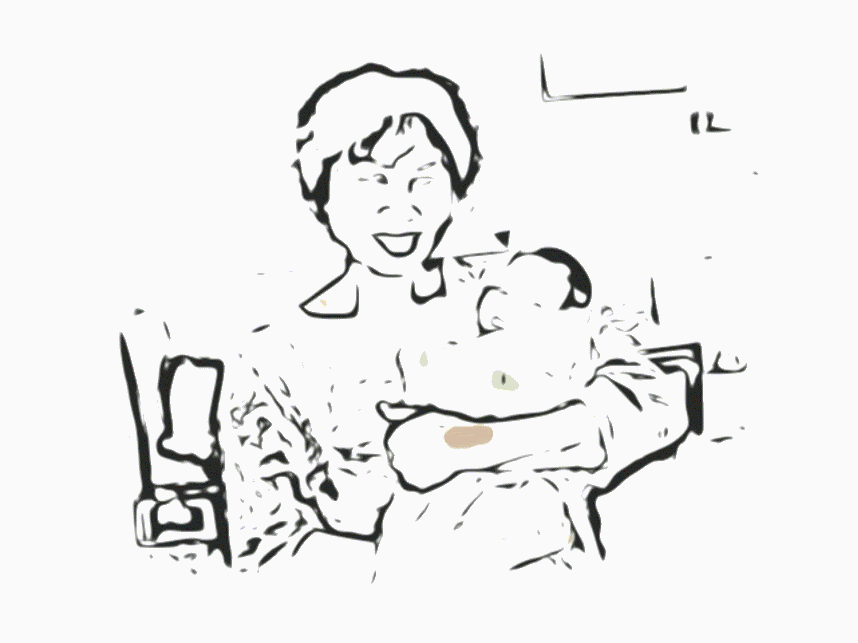
Pediatrician and psychoanalyst Dr. Benjamin Spock revolutionized modern child care when he encouraged parents to openly express affection and eschew physical discipline for their children. His book became a parenting staple, but he was also a polarizing figure.
Benjamin Spock’s Early Days
Benjamin McLane Spock was born May 2, 1903, in New Haven, Connecticut. He attended Phillips Andover Academy and Yale University. An exceptional rower, he won a gold medal at the 1924 Olympics as a member of the Yale University squad.
After receiving an undergraduate degree, he pursued a medical degree at Columbia University, graduating at the top of his class. Next, he studied psychoanalysis for six years, believing that combining a knowledge of psychology and pediatrics would be the most effective way of helping his child patients.
Dr. Spock’s Notable Accomplishments
“Trust yourself. You know more than you think you do,” Spock wrote in the first paragraph of his 1946 blockbuster book, “The Common Sense Book of Baby and Child Care.” Spock’s central idea was that the parent is the “true expert” of his or her child. In the book, he advised new and seasoned parents on childcare issues large and small, from teething to social development.
Collectively, the various editions of the book are the world's bestselling nonfiction work after the Bible; the book has sold more than 50 million copies and been translated into 39 languages.
Dr. Steven Parker, Dr. Spock's co-author of “Dr. Spock's Baby & Child Care,” explained in an interview with PBS that before Dr. Spock, parents were told not to kiss, hug or embrace their children. But Dr. Spock's unique training allowed him to advocate a different approach to parenting.
Dr. Parker says Dr. Spock believed that healthy child development depended on a strong bond between parent and child; essentially, “children needed to feel loved. And if they felt loved, almost everything else would follow from there. That was revolutionary in 1946, believe it or not.”
Spock advised parents to ease up on physical discipline (he favored a no-spanking policy) and given children more opportunity to make their own decisions. During the 1960s, conservative minister Norman Vincent Peale claimed that the student protests were caused by Spock's doctrine of parental “permissiveness.”
The Rest of the Story
Spock himself was a vocal political activist during the 1960s. His protest against the Vietnam War earned him a suspended two-year prison sentence for conspiring to abet draft resistance. He also worked on the National Committee for a Sane Nuclear Policy. Spock continued to be politically active well into his 90s, and even ran for president on an independent ticket in 1972.
Dr. Spock spoke openly about his own experiences with vegetarianism, claiming the change in diet cured his chronic bronchitis. He went on to recommend the diet for children over the age of two. Some were flabbergasted by a second suggestion that children over the age of two abstain from dairy products, or at the very least, cow’s milk. The advice appeared in the seventh edition of “Baby and Child Care” published shortly before his death on March 15, 1998, at the age of 94.
Sixty-five years ago today, one of the most revolutionary books in American history was published. True, Dr. Benjamin Spock's Common Sense Book of Baby and Child Care probably didn't look like much when it first came out in 1946 — just in time for the baby boom. But with his conversational tone and his concise, practical tips on everything from toilet-training to calming a colicky baby, Spock helped to usher in a new era of American home life. Spock was, as TIME noted in the doctor's obituary in 1998, "one of the most famous and controversial figures of his century. He singlehandedly changed the way parents raise their children." By the time of his death, Spock (apparently no inspiration for the Star Trek character by the same name) had sold nearly 50 million copies of his book, translated into 42 languages. Today the book is still in print, although it now goes by the name Dr. Spock's Baby and Child Care. It's in its eighth edition and updated with tips for contemporary parenting, including advice for gay and lesbian parents and even notes on international adoption. In honor of the book's 65th birthday, here are five great Spock ideas that helped define America's view of parenthood. Next: Parents should trust their instincts
Sixty-five years ago today, one of the most revolutionary books in American history was published. True, Dr. Benjamin Spock’s Common Sense Book of Baby and Child Care probably didn’t look like much when it first came out in 1946 — just in time for the baby boom. But with his conversational tone and his concise, practical tips on everything from toilet-training to calming a colicky baby, Spock helped to usher in a new era of American home life.
Spock was, as TIME noted in the doctor’s obituary in 1998, “one of the most famous and controversial figures of his century. He singlehandedly changed the way parents raise their children.”
By the time of his death, Spock (apparently no inspiration for the Star Trek character by the same name) had sold nearly 50 million copies of his book, translated into 42 languages.
Today the book is still in print, although it now goes by the name, Dr. Spock’s Baby and Child Care. It’s in its eighth edition and updated with tips for contemporary parenting, including advice for gay and lesbian parents and even notes on international adoption.
In honor of the book’s 65th birthday, here are five great Spock ideas that helped define America’s view of parenthood.
1) Trust your instincts
When Spock’s book came out in 1946, U.S. doctors had already established themselves as voices of authority — experts in the budding, newly productive field of medicine. But Spock, unlike many in his profession, did not command his readers to follow strict doctor’s orders. Instead, from his opening sentences, Spock’s tone was warm and reassuring:
“Trust yourself,” he told new parents. “You know more than you think you do.”
Spock gave anxious postwar moms and dads permission to be confident in their own sound parenting — that now-typical American sense that parents know best what’s right for their own kids. There wouldn’t always be a pediatrician on hand when the toddler grew stubborn or the baby was bawling. But if parents would just use some common sense and trust their instincts, Spock believed, they would usually get through it fine.
2) Routines are nice, but babies don’t need strict a regimen
Spock broke with conventional wisdom of his day and said it was not really too important for infants to keep a strict, regular feeding and sleeping schedule.
The doctor was in no way opposed to giving children some good, solid day-to-day routine, mind you. But if a young baby was wailing with hunger outside of a regular mealtime, Spock felt it was fine for the mother to give her baby (and herself) some peace.
Critics balked at the idea that parents would follow the whims of a mere infant, feeding or rocking the child at all hours of the day — or night. They warned that Spock was too “permissive,” and that coddling babies and children could eventually make them self-indulgent and rebellious.
This view became especially popular as the baby boomers came of age in the 1960s, and Spock himself started speaking out in protest of the Vietnam War, critical of the U.S. government.
Spock became controversial for his views that parents needed to follow the cues of their babies. Yet modern readers perusing Spock’s earliest editions of Baby and Child Care sometimes find him uncomfortably cold for today’s standards. It shows how much public opinion has shifted in 65 years.
3) Don’t fret if your baby acts funny; Freud can explain it
While training as a pediatrician in the early 1930s, the young Dr. Spock is said to have wanted to learn psychology, so that he could better understand child development. Spock trained part-time later that decade at the New York Psychoanalytic Institute. He became well versed in the theories of Sigmund Freud — the eminent early psychologist, who posited that human behavior is largely the product of unconscious sexual drives, determined in no small part by childhood experience.
As TIME wrote in its obituary of Spock in 1998:
What Spock really did in Baby and Child Care, which he started writing in 1943, was to sneak Freudian concepts into the American middle-class mind. Surmising that new parents were not yet ready to hear of their infants’ oral, anal and genital stages, Spock simply advised moms and dads not to get alarmed if baby sometimes behaved, well, oddly. He had learned from Freud that repression could produce catastrophic adult neuroses. Better, he advised, to wait things out.
Over the course of Spock’s lifetime, most of those Freudian concepts were debunked or otherwise abandoned by the medical profession. But who knows how many parents were unwittingly influenced by Freud’s somewhat bizarre ideas, without even knowing it.
4) Ideas about good parenting should evolve
Spock continued to update Baby and Child Care throughout his life. His first edition, after all, was published in 1946, when “parenting,” at least for infants, meant almost exclusively “mothering.”
Over the decades Spock came to view this as wrong. He embraced an increased role for fathers and adopted a more gender-neutral tone, expunging sexual stereotypes from the book.
By the 1990s, he was taking on the fight against childhood obesity, and wanted to include information for gay and lesbian parents.
Crucially, he also changed the way he dealt with his own family. Shortly before Spock’s death, journalist and writer Thomas Maier published a biography of the man, Dr. Spock: An American Life. In it, Maier writes writes:
[Spock] acknowldeged being too career driven and in recent years made a concerted effort to show more affection to his grown sons in a way they said never happened in their youth. [...] [He] recognized the inconsistencies between his public and private lives, the insurmountable gap he had trouble reconciling even in his own mind. His lesson to fathers, Spock now told an interviewer, comes “through my writing, not my example.”
5) Babies need love
It seems almost ludicrous today that anyone could ever think otherwise. But this idea was by no means taken for granted just 100 years ago. Early 20th-century child-rearing guides warned parents not to kiss their babies or cradle them too much, lest the children become spoiled.
Spock taught his readers that babies were little people with their own emotional needs, and that they should be cherished, not encouraged to meet the schedules and rules of adult life as quickly as possible.
“Children are driven from within themselves to grow, explore, experience, learn, and build relationships with other people,” the latest edition of Baby and Child Care now reads. “So while you are trusting yourself, remember also to trust your child.”
Read online PDF (Chinese )
Read more: http://healthland.time.com/2011/07/14/65-years-since-spock-five-ideas-that-changed-american-parenting/#ixzz2EO5EQ4Zz








沒有留言:
張貼留言